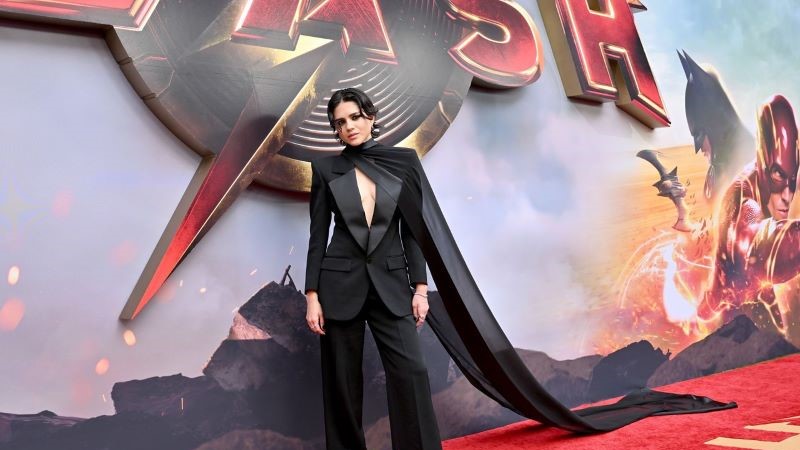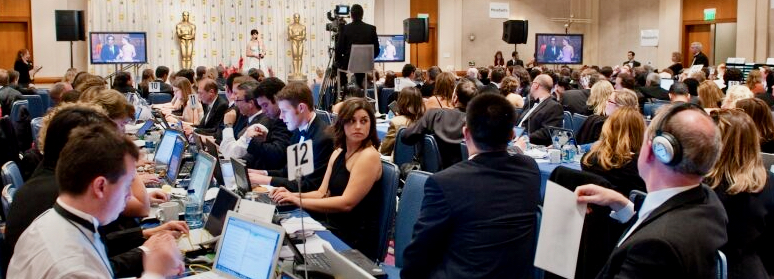
The strike by Hollywood screenwriters might seem distant to film marketing, which focuses on release-ready films, but labor turmoil is taking a toll on cinema premieres. Myriad secondary impacts from Hollywood labor strife are crimping movie marketing:
* Uncertainty that film talent will do publicity for finished films.
* Awards events are under boycott threat.
* TV talk shows are in reruns killing a prime film publicity platform.
* Potential tie-in promotional partners are skittish.
* Distributors push back future releases because of production disruptions.
On top of the writers’ walkout that started May 2, the separate actors union also voted to authorize a strike for its contract expiring June 30; an actors strike isn’t automatic. It’s interesting to note that the third major creative union representing directors settled amicably with Hollywood employers June 4, and that pact is still going through union approvals.
The vote by the SAG-AFTRA actors union prompted Variety to report “Looming SAG Strike Threatens Publicity Plans” for Warner Bros. Pictures’ ”Barbie,” Universal Pictures’ ”Oppenheimer,” and Paramount Pictures’ ”Teenage Mutant Ninja Turtles: Mutant Mayhem.”
The story says ”Oppenheimer” has New York press junkets scheduled July 7-8, which are under threat. Film stars will be absent if actors strike.
Nuke-bomb historical drama ”Oppenheimer” is scheduled for July 21 premiere, which is not in doubt, but supporting publicity is. Press junkets are ”mass press events at a single location that bring together journalists and film talent for interviews,” explains the glossary of book ”Marketing to Moviegoers.”

”Already, the Writers Guild of America strike has caused promotional headaches for TV and streaming shows looking to launch Emmy campaigns,” says the Variety story by Matt Donnelly and Brent Lang. “It’s also created dilemmas for publicists hoping to score press for writer clients with movies opening in theaters or debuting at Cannes or Tribeca.” Emmys are TV’s big awards, which impacts movie streamers.
The Television Critics Association, a trade group for TV journalists, canceled its annual Hollywood press junket that would have been in late July or August because of uncertainty about Hollywood labor strikes. Without actors and writers, the junkets would be of little value. TCA’s next press event is now in January. Press events are springboards for all sorts of publicity.
Another casualty for Hollywood marketing are late night talk shows dropping original episodes because of new writers. That means Hollywood stars won’t be sitting on a couch bantering about their latest film exploits with Jimmy Fallon, Stephen Colbert and other chat-show hosts.

It’s believed corporate America is skittish about being promotional partners with movies, for fear of reprisals by striking Hollywood labor. Specifics on this are hard to nail down and promotions are linked up months or a year in advance, though labor turmoil could cause such tie-in partners to dial back. These are car, food, liquor, fashion and other consumer products marketers with formal joint marketing agreements with movies.
Hollywood film distributors stake out release dates for their big films one and two years in advance, and such film ”dating” activities suffer havoc because film production is mostly stopped. For example, Walt Disney Studios on June 13 delayed the next three ”Avatar” movies by a year. The fifth ”Avatar” is now scheduled Dec. 19, 2031, which is a mind-boggling eight years forward and that is unusually long.
As for the labor unrest itself, the writers’ strike seems primarily triggered by reduced staffing for streaming video programs, pay for working in writer rooms and residual payments for streaming. Some news reports suggest artificial intelligence replacing writers is also a big issue, but that technology is not a threat at this time.
The mood in Hollywood labor seems confrontational, given rank-and-file actors gave their union approval to call a strike before negotiations hit an impasse. And as usual, the directors are most oriented to getting on with work without striking.
Timing of the current labor discord seems to favor employers. Video streamers peaked sooner than expected so leading streamers (four of Hollywood’s five major studios operate top streamers) are in a cutback mode. The strike makes it easier for streamers and Hollywood studios to downsize or cancel original program deals. Interestingly, the key writers for TV shows are also producers, which means those exalted creative figures have a foot on both sides of the labor-employer divide.
Related content:
Leave a Reply